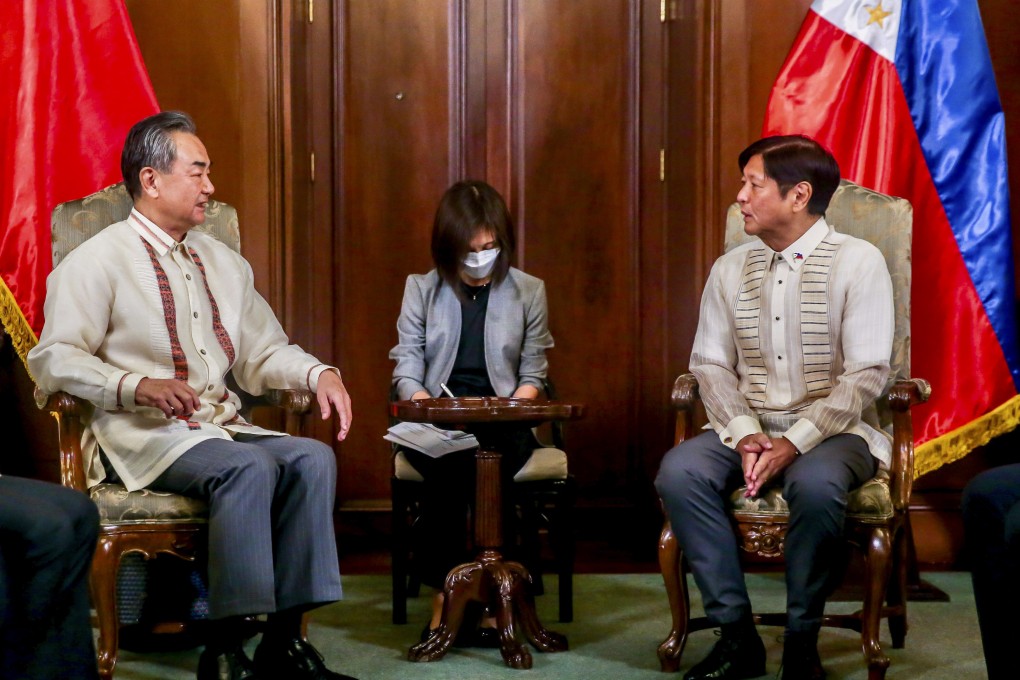Advertisement
Opinion | Whatever Marcos’ rhetoric, it suits Manila to be friendly with China and the US
- The Philippine president’s uncompromising tone on the South China Sea is probably meant to reassure Western allies and the domestic audience
- Economically and politically, however, China remains an important partner of the Philippines and a significant part of Marcos’ calculations
Reading Time:3 minutes
Why you can trust SCMP
2

More than a week before Ferdinand “Bongbong” Marcos Jnr announced his presidential candidacy last year, he declared that outgoing Philippine president Rodrigo Duterte’s policy of engaging China, although subject to criticism, “is the right way to go. Because whatever we do, we can’t go to war.”
At ensuing presidential debates, Marcos continued to underscore his commitment to a dialogue-based approach to the festering dispute around the South China Sea.
Following his election victory, however, he has taken a more strident stance on maritime territory.
Advertisement
Just weeks after his win, he said in May: “Our sovereignty is sacred and we will not compromise it in any way. We will not allow a single square millimetre of our maritime coastal … rights to be trampled upon.” And in his first State of the Nation Address last month, he took the same uncompromising tone.
In contrast to Duterte, who once called the 2016 tribunal ruling against Beijing’s claims in the South China Sea a piece of paper, Marcos has described the ruling as “very important” and a tool for Manila “to assert our territorial rights”.
Advertisement
Meanwhile, the new Philippine government has suspended three major Chinese-backed railway projects, openly fretting over financing issues.
Advertisement
Select Voice
Select Speed
1.00x
